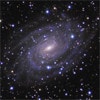Google announces crackdown on in-app billing, aimed at Netflix and Spotify

With a lot of focus lately on how smartphone app developers are treated on Apple's and Google's app stores, Google has decided right now is a great time to announce more stringent app store billing rules.
Google draws a clear distinction between Android and iOS by pointing out that on Android, developers have a "choice of stores" and that most Android devices ship with multiple app stores. Google mentions twice that "each store is able to decide its own business model and consumer features" with the implication being that if developers want to be on Google Play, which has 2 billion active users, they're going to have to start following the rules or look elsewhere.
We're more or less oblivious to 75% of junk in geosynchronous orbits around Earth

The small bits of space junk identified by the study are often overlooked; they’re faint, small, and in a region that’s monitored less intensively than low-Earth orbit. As a result, scientists probing geosynchronous orbits above the equator found that the majority of debris located 36,000km out remains uncatalogued. That could be a problem – or more specifically, a danger – for any spacecraft placed in those orbits.
NASA ditching insensitive nicknames for cosmic objects

Planetary nebula NGC 2392 has been called the "Eskimo Nebula." "'Eskimo' is widely viewed as a colonial term with a racist history, imposed on the indigenous people of Arctic regions," NASA explained.
The agency will also use only the official designations of NGC 4567 and NGC 4568 to refer to a pair of spiral galaxies that were known as the "Siamese Twins Galaxy."
Amazon gets green-light to blow $10bn on 3,000+ internet satellites

As per the updated FCC rules, the e-commerce giant will have to submit a detailed plan of how it plans to minimize the risk of creating and spreading orbital debris. As more and more satellites are lobbed into space, the probability of stuff colliding with one another gets higher.
Bankrupt OneWeb seeks license for 48,000 satellites, even more than SpaceX

SpaceX's application to launch 30,000 satellites—in addition to the nearly 12,000 it already has permission for—is consistent with SpaceX's previously announced plans for Starlink.
OneWeb's application to launch nearly 48,000 satellites is surprising because the satellite-broadband company filed for bankruptcy in March.
Hubble telescope delivers stunning 30th birthday picture

It's 30 years ago to the day that the Hubble telescope was launched - and to celebrate its birthday, the veteran observatory has produced another astonishing image of the cosmos.
There's a quiet confidence that Hubble can keep working well into the 2020s. Its supposed "successor" - the James Webb Space Telescope (JWST) - is due for launch next year, but the presence in orbit of this more modern observatory will in truth merely just extend capability; it won't make Hubble redundant.
Legal action could be used to stop Starlink affecting telescope images

A group of astronomers has called for legal action to stop the launch of vast numbers of satellites designed to beam high-speed internet around the world until their impact on the night sky can be assessed.
Starlink satellites have created bright streaks in some telescope images affecting astronomical observations. Some worry that the thousands of bright points of light could alter the sky for the public and astronomers forever.
“If it is not possible to leave a better planet for future generations, we can at least try not to make it worse,” says group member Stefano Gallozzi at the Astronomical Observatory of Rome in Italy.
Watch SpaceX Blow Up a Falcon 9 Rocket to Prove It's Safe for People

Just a minute and a half after launch, the Falcon 9 will kill its engines and the Crew Dragon will fire its SuperDraco engines to separate from the rocket. At this point, the rocket and the capsule will both be traveling around 1,000 miles per hour. After separation, they will continue coasting through the stratosphere before they begin their return to Earth. The Falcon 9 will get torn to shreds over the Atlantic Ocean during its descent, but the Crew Dragon will gently land in the ocean under parachute.
The Navy Has Secret Classified Video of an Infamous UFO Incident

In response to a Freedom of Information Act request sent by researcher Christian Lambright seeking more information on the incident, the Navy said it had “discovered certain briefing slides that are classified TOP SECRET. A review of these materials indicates that are currently and appropriate Marked and Classified TOP SECRET under Executive Order 13526, and the Original Classification Authority has determined that the release of these materials would cause exceptionally grave damage to the National Security of the United States.”
“The Pentagon has a long history of sometimes providing inaccurate information to the American people,” Elizondo said. “This is true as recently as this week regarding the draft memo involving Iran, and two weeks ago when the press finally received the truth about Afghanistan despite 18 years of statements to the contrary.”
SpaceX submits paperwork for 30,000 more Starlink satellites

SpaceX, which is already planning the world’s largest low-Earth-orbit broadband constellation by far, filed paperwork in recent weeks for up to 30,000 additional Starlink satellites on top of the 12,000 already approved by the U.S. Federal Communications Commission.
The United Nations Office for Outer Space Affairs said in April that approximately 8,500 satellites, probes, landers, crewed spacecraft, cargo craft and space station flight elements have been launched into Earth orbit or beyond since 1957, when Sputnik launched. If SpaceX launches 30,000 Starlink satellites in addition to the 12,000 it already planned, the company will by itself be responsible for about a fivefold increase in the number of spacecraft launched by humanity.